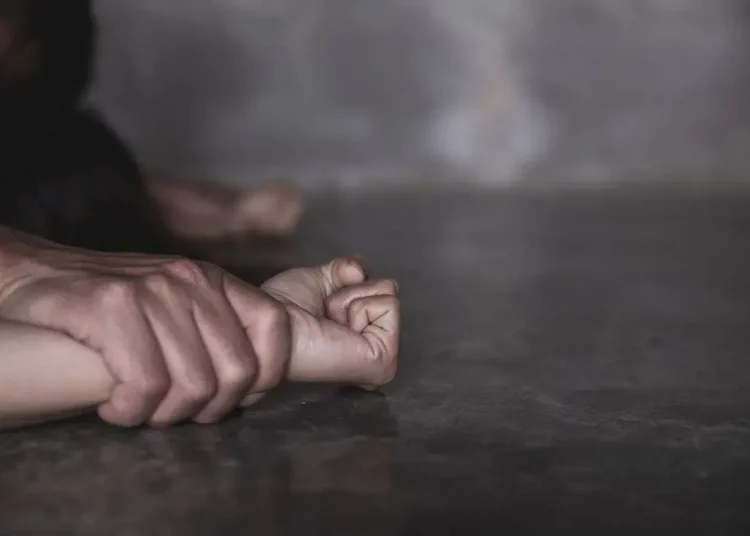Independent Corrupt Practices and Other Related Crimes Commission (ICPC) recently disclosed plans to set up a special team/unit tasked with the responsibility of handling sexual abuse cases.
This was revealed by the ICPC chairman, Prof. Bolaji Owasanoye at the national stakeholders’ engagement and presentation of draft model policies on sexual harassment in educational institutions in Abuja.
At the event, the chairman said the programme is aimed at engaging stakeholders from civil society, government agencies, public and private educational institutions and other sectors to critically review draft policies on sexual harassment.
For emphasis, he said the past three years have been peculiar for the education sector and that COVID-19 pandemic, resultant lockdown and forced adjustments in the academic calendar have all exacerbated the situation in an unprecedented manner.
“It would be a travesty of justice if students in schools who have weathered all the above storms finally resume only to become victims of another challenge-sexual harassment.”
“The purpose of this engagement is to brainstorm and review the draft documents which the commission and Gender Mobile have drafted in the hope that these documents would eventually be adopted as templates for educational institutions when drafting individual organizational sexual harassment policies.”
It goes without saying that the initiative is commendable. This is more so that this task fall within the jurisdiction of the anti-graft agency.
ICPC Establishes Special Unit To Tackle Sexual Abuse
A Federal High Court sitting in Calabar ruled that the Independent Corrupt Practices and Other Related Offences Commission (ICPC), has the right to investigate a former Dean of the Faculty of Law, University of Calabar, Professor Cyril Ndifon, over an allegation of abuse of office.
Justice I. E. Ekwo who delivered judgment 2nd of March, 2017 in a suit brought against ICPC by the Professor of Law, in which he sought to restrain the Commission from investigating the alleged offence of demanding for sexual gratification from a female student of the University, maintained that it was within the purview of ICPC to investigate the case in accordance with the Corrupt Practices and Other Related Offences Act 2000.
The trial judge held that the police report which exonerated Ndifon had no bearing on the Commission’s investigation of an allegation of abuse of office against him.
He added that the offence of sexual gratification was contrary to Sections 8, 9, and 19 of the Corrupt Practices and Other Related Offences Act, 2000, which refer to any public officer who receives benefit of any kind in the discharge of his duties or uses his position to confer corrupt advantage upon himself.
It would be recalled that a final year law student had petitioned ICPC alleging that the Professor had sex with her in his office without her consent, after inviting her to the office to rewrite an earlier cancelled test.
Evidently, the commission has the mandate to take on the task especially in a society where victims rarely report sexual harassment.
According to statista.com, In 2019, there were 59 reported cases of sexual violence in Nigeria. The majority of the victims were female, which accounted for 56 cases. Compared to 2017, the number of cases reported to the authorities increased.
Also, a poll conducted by NOIPOLLS in July 2019, revealed that most Nigerians (85 per cent) believe that there is a high prevalence of rape in Nigeria. This, in our opinion, is a worrying situation!
According to the report, “about three in 10 Nigerians (26 per cent) disclosed that they know someone who has been raped in the past and the rape victims were particularly minors and young adults aged between 1 – 15 years (72 per cent) and 16 – 25 years (24 per cent) respectively. This statistic implies that one in every three girls would have experienced at least one form of sexual abuse by the time they reach 25 years”.
As disclosed by NOIPOLL, “there are perceptions that rape cases have been under-reported especially to the Police, findings showed that slightly more than half (53 per cent) of the respondents mentioned that rape incidents were reported to the Police. Out of this proportion, 67 per cent acknowledged that the offenders were arrested, while 33 per cent claimed that the offenders were not arrested. This implies that about 3 in 10 perpetrators of this atrocious crime often don’t face the drum or the dictates of the law against the crime even when reported to the police”
As a newspaper, we support any initiative that aims at addressing this oppressive act. The abuse of students in academic institutions has remained a major cause for concern in the country. Sex for marks scandals have remained another sore point of the nation’s academic institutions history, especially in the universities.
We hold that the commission,however, should operate in such a way that abused persons will be confident enough to come forward to report cases. So it will be equally important that it embarks on robust social awareness and also put structures in place to protect the abused.
Also, we suggest that the commission be mindful of operating in such a way that innocent persons will not be victimised. The tendency to embark on media trials should be tamed or else the whole essence of the initiative will be defeated.
A balance between exhaustive investigations and swift dispensing of justice will be key.





